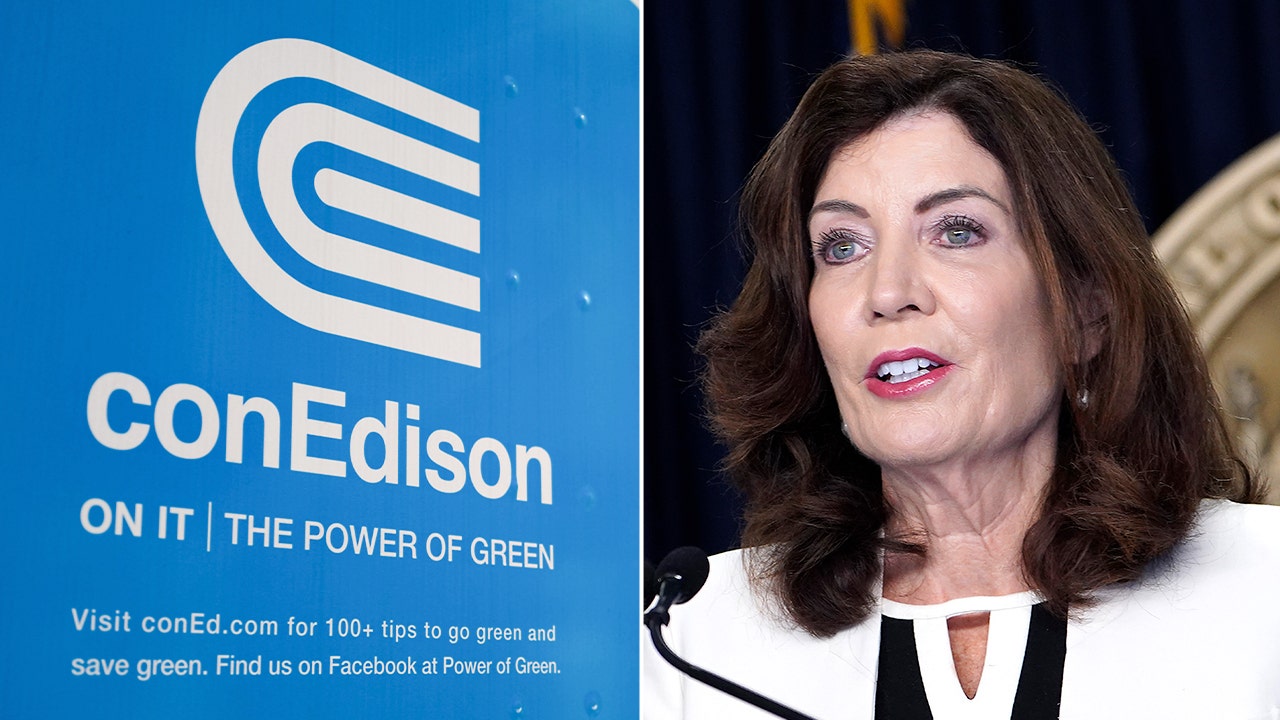Kathy Hochul does apparent about-face on natural gas as NYC utility signals major rate hikes

New York Governor Kathy Hochul has recently approved permits to expand capacity on a major bi-state pipeline, the Iroquois Pipeline, despite years of advocating for green policies such as bans on natural gas use in new construction. The pipeline, stretching 414 miles from St. Lawrence County near the border with Cornwall, Ontario, down through the Adirondacks, western Connecticut, under Long Island Sound, and branching off toward Commack, Long Island, or Hunts Point, Bronx, plays a crucial role in the region’s energy infrastructure.
This decision has raised concerns as the state Department of Environmental Conservation has acknowledged that the approvals are not in line with statewide greenhouse gas emissions limits that have been put in place in recent years. The move comes at a time when the Hochul administration is facing criticism for its handling of utility rates in the state.
Governor Hochul has been under fire for her approval of rate hikes by Consolidated Edison (ConEd), the main utility provider in New York City and Long Island. The utility company is planning to implement significant increases in electric and gas rates, which could amount to about $500 per year for consumers. This has sparked calls for intervention by the New York Public Service Commission (PSC) to prevent these hikes.
The decision to expand the pipeline capacity and the increase in utility rates have come as a surprise to many, given New York’s efforts to move away from fossil fuels and towards renewable energy sources. In recent years, the state has taken steps to reduce its reliance on fossil fuels, including the closure of the Indian Point nuclear energy production facility and the banning of furnaces and gas heating in new construction projects.
Despite these efforts, Governor Hochul’s administration has faced criticism for its handling of energy supply during extreme weather events, such as the recent Arctic storm that brought temperatures near zero degrees Fahrenheit to the state. A report from the PSC indicated that ConEd and National Grid were struggling to provide adequate energy supply during the storm, raising concerns about the state’s energy infrastructure.
Republicans have criticized Governor Hochul’s decision to expand the pipeline capacity and her handling of utility rates, calling for a focus on reliability, affordability, and common sense in energy policy. The state’s ban on fracking in the natural-gas-rich Southern Tier has also been a point of contention, with lawmakers from the region pushing for the ban to be lifted to support local economies.
As Governor Hochul faces scrutiny over her energy policies, the debate over the state’s energy future continues. The balance between promoting renewable energy sources and ensuring reliable and affordable energy supply remains a key challenge for policymakers in New York.




